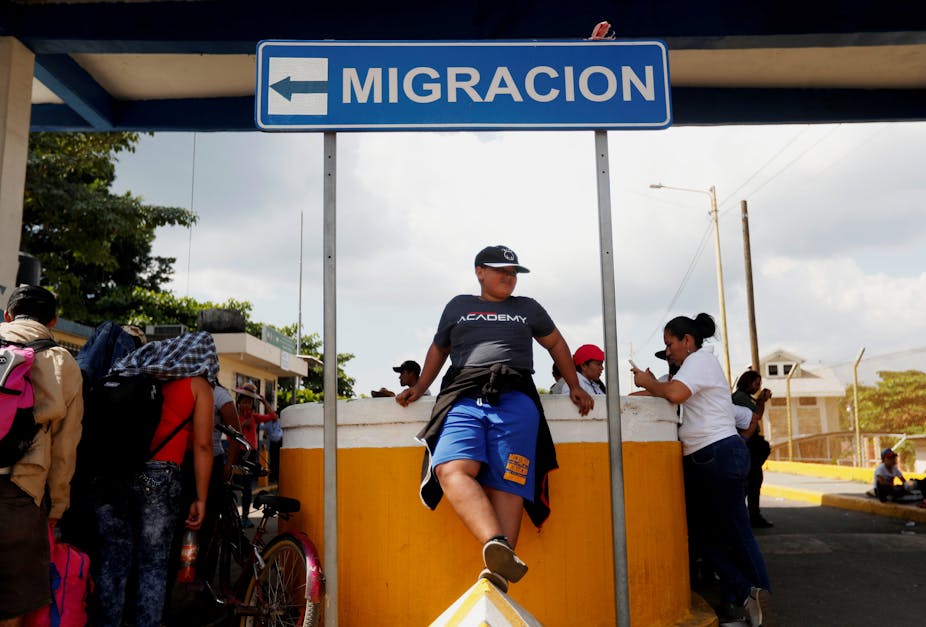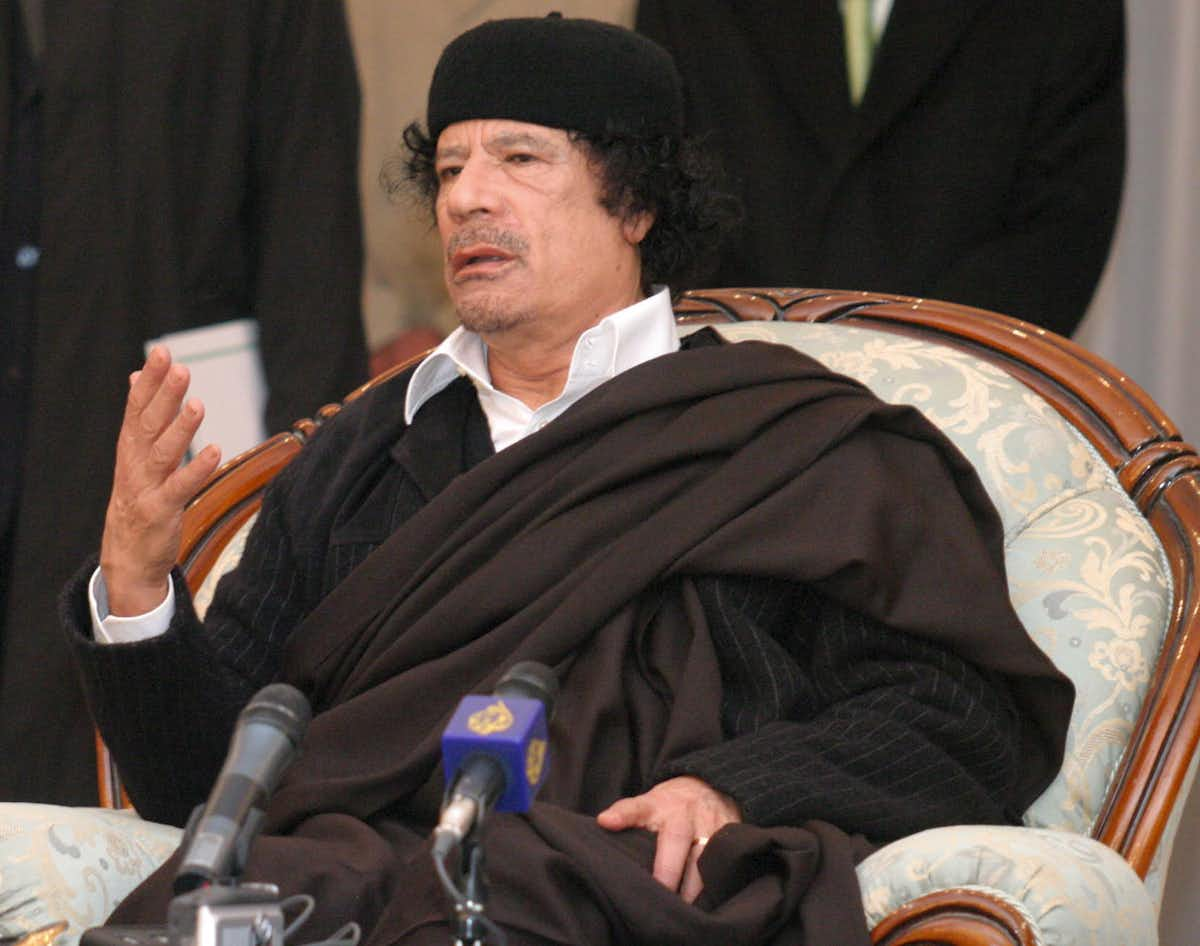
The story of Rahaf Mohammed, the Saudi teenager granted asylum by Canada on January 11 after barricading herself in a Bangkok hotel room, sparked headlines around the world.
The decision to grant asylum to Mohammed, the daughter of a Saudi town governor, was the latest episode in an ongoing spat between Canada and Saudi Arabia. Commenting on the decision, the Canadian prime minister, Justin Trudeau, said:
Canada is a country that understands how important it is to stand up for human rights, to stand up for women’s rights around the world.
The interaction of asylum policy and foreign policy evident in Trudeau’s stance is the latest example of “migration diplomacy”, a form of statecraft surrounding the mobility of people across borders that our research shows is becoming increasingly significant in world politics.
Migration is becoming a key dimension of states’ diplomatic relations, particularly as the number of migrants across the world rose to 258m in 2017 alone.
In the US, president Donald Trump’s attempts at securing funding for a “wall” along the southern border included offering a mixture of “carrots” and “sticks” to Mexico. In the UK, the issue of immigration and border controls has been an ongoing thorn in the country’s relations with the EU since the 2016 referendum on Brexit. But British migration diplomacy is likely to extend well beyond the day the UK leaves the EU, with India already demanding that visas for workers be part of any future trade deal with the UK.
Meanwhile, European elites continue to engage with Turkey’s inclusion of migration in its foreign policy. In 2016, President Recep Tayyip Erdoğan was promised €6 billion of European funds in return for exercising stronger control over Syrian refugees seeking to cross into EU territory. As part of the deal, refugees who cross the Mediterranean can be sent back to Turkey.
Ethiopia employed a more conciliatory approach that culminated in a 2018 “jobs compact”. The compact secured $500m in international funding towards offering employment opportunities for some of the 900,000 refugees hosted within Ethiopia’s borders.
Diplomatic toolbox
As migration becomes a more prominent part of foreign policy strategies, countries are using diplomatic tools and procedures to manage the cross-border movement of people. These can include intergovernmental agreements that aim to manage migratory flows, such as the Global Compact for Migration signed in late 2018.
Other types of bilateral co-operation can involve the creation of guest-worker or other temporary labour migration schemes similar to Canada’s longstanding seasonal agricultural workers programme with Mexico and numerous Caribbean countries. Or, in a more extreme example, countries of destination, such as Jordan or Libya, choose to expel foreign workers to create political leverage against the workers’ countries of origin that depend on the money migrants send back to their families.
Governments can use migration policy as a bargaining tool and as a way to pursue other goals, such as enhancing their security, achieving economic interests, or boosting their soft power via cultural or public diplomacy.
Who gains from migration diplomacy
Two key approaches to bargaining that states use in migration diplomacy are zero-sum and positive-sum strategies.
Zero-sum perspectives are those in which states seek to gain an advantage over a competitor. In the course of the 2015 negotiations on resolving the Greek debt crisis, for example, the country’s defence minister frequently employed such an argument. Panos Kammenos threatened that unless Europe provided a satisfactory solution, Greece would “flood it with … millions of economic migrants.”
Libya’s former leader, Muammar Gaddafi, also resorted to coercive migration diplomacy when dealing with the European Union. At various times, he would demand European funding by threatening to “turn Europe black” with African migrants and asylum seekers.

Historically, the US also pursued zero-sum migration diplomacy during the Cold War. The 1966 Cuban Adjustment Act, introduced under president Lyndon Johnson, granted permanent residence status to any Cuban living in the US for more than a year and underlined the tense diplomatic relations between Washington and Havana.
On the other hand, positive-sum strategies stress co-operation in migration issues, in which both parties gain benefits. In the 1960s and 1970s, West Germany introduced a guest-worker programme, which facilitated immigration of Greek, Turkish, and other countries’ labourers (known as gastarbeiter) into the country. It aimed to provide a solution to both West Germany’s shortage of low-skilled labour, and the unemployment issues that plagued the partner states.
In an ongoing example, the Cuban state organises the short-term emigration of thousands of medical professionals across Latin America, Africa, and Oceania as part of its “medical internationalism.” In 2014, Cuba dispatched hundreds of health workers to Sierra Leone in the fight against Ebola.
As international migration continues to rise on the global political agenda, countries’ interests in either promoting or deterring the movement of people significantly affects the dynamics of their diplomatic relationships. Migration diplomacy is set to become an increasingly significant area of foreign policy and statecraft.![]()
Gerasimos Tsourapas, Lecturer (Assistant Professor) in Middle East Politics, University of Birmingham and Fiona B. Adamson, Reader (Associate Professor) in International Relations, SOAS, University of London
This article is republished from The Conversation under a Creative Commons license.


